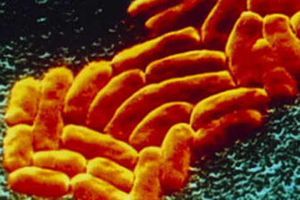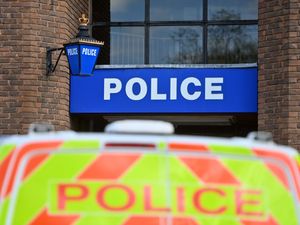New superbug found at Princess Royal Hospital, Telford
Nine patients in Shropshire contracted a new superbug that is resistant to even the most powerful antibiotics following urology treatment at a county hospital, new reports have revealed. Nine patients in Shropshire contracted a new superbug that is resistant to even the most powerful antibiotics following urology treatment at a county hospital, new reports have revealed. Delhi Metallo-beta-lactamase (NDM) Klebsiella emerged last year after it was believed to have travelled back to Britain in patients who went to India or Pakistan for medical procedures such as cosmetic surgery. Reports to health chiefs in Shropshire say a cluster of nine patients were found to have contracted the bug in June 2010 following a rigid cystoscopy procedure at the Princess Royal Hospital in Telford. In most cases the symptoms were either "mild or non-symptomatic" but two patients required intravenous antibiotics. Medical experts say a new gene known as NDM-1 allows bacteria to be highly resistant to almost all antibiotics and it has spread in India, Pakistan and Bangladesh. [24link]

Nine patients in Shropshire contracted a new superbug that is resistant to even the most powerful antibiotics following urology treatment at a county hospital, new reports have revealed.
Delhi Metallo-beta-lactamase (NDM) Klebsiella emerged last year after it was believed to have travelled back to Britain in patients who went to India or Pakistan for medical procedures such as cosmetic surgery.
Reports to health chiefs in Shropshire say a cluster of nine patients were found to have contracted the bug in June 2010 following a rigid cystoscopy procedure at the Princess Royal Hospital in Telford.
In most cases the symptoms were either "mild or non-symptomatic" but two patients required intravenous antibiotics.
Medical experts say a new gene known as NDM-1 allows bacteria to be highly resistant to almost all antibiotics and it has spread in India, Pakistan and Bangladesh. NDM-1 can exist inside different bacteria, such as E.coli, and makes them resistant to one of the most powerful groups of antibiotics – carbapenems. These are reserved for use in emergencies and to combat hard-to-treat infections caused by other multi-resistant bacteria.
A report to the board of Shropshire County PCT earlier this week says swabs taken from the head of the camera used at the PRH last year grew the resistant Klebsiella – indicating that it was the "probable cause" of cross infection.
Officials say a number of measures have since been taken to avoid the bug being contracted in the future, including the use of disposable sleeves to be used on the camera head.
A report to today's board meeting of Shrewsbury and Telford Hospital NHS Trust says that a review found one additional case but none have since been identified.
It says: "The outbreak was communicated to the Health Protection Agency and the Strategic Health Authority.
"Sixty patients who had had recent urology surgery were contacted via their GP for urine checks and information provided to them on NDM Klebsiella. A contact number was also provided for the IPC Team."
Meanwhile the report to the board says the trust is meeting targets for limiting the number of cases of other superbugs such as MRSA and C diff.
It says: "Looking ahead to 2011/12 our targets for C difficile and MRSA are very challenging, and we are now also monitoring MSSA bacteraemia and E coli bacteraemia."
NDM-1 stands for New Delhi Metallo-beta-lactamase-1. This is an enzyme carried by the Klebsiella bacteria which destroys many antibiotics used to treat infection when it occurs.
Infection from NDM Klebsiella occurs mainly in urine, but also may infect wounds and the blood.
It is spread from people already carrying the germ and ineffective hand washing.
NDM-1 can easily jump from one strain of bacteria to another. Experts are worried that it may end up in another bacterium which is already resistant to many other antibiotics.
The NDM-1 enzyme was named after New Delhi, the capital city of India.
It was first noticed in December 2009 in a Swedish resident who fell ill with an antibiotic-resistant bacterial infection that he had acquired in India.
It is feared it could produce dangerous infections that would spread rapidly from person to person and be almost impossible to treat.
By Russell Roberts



